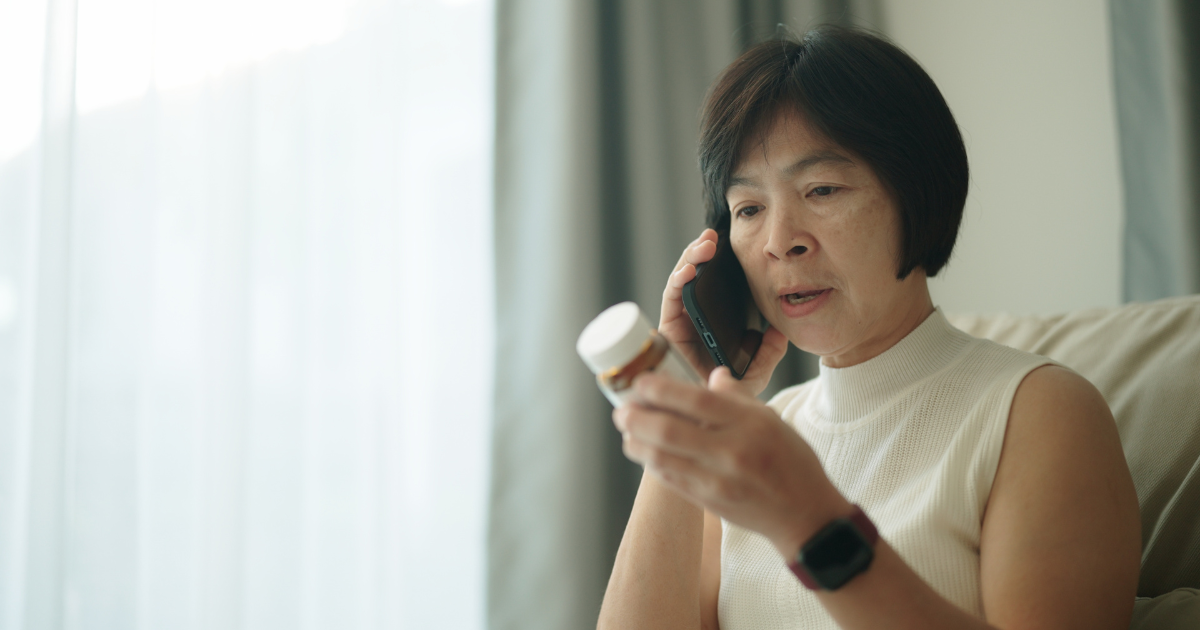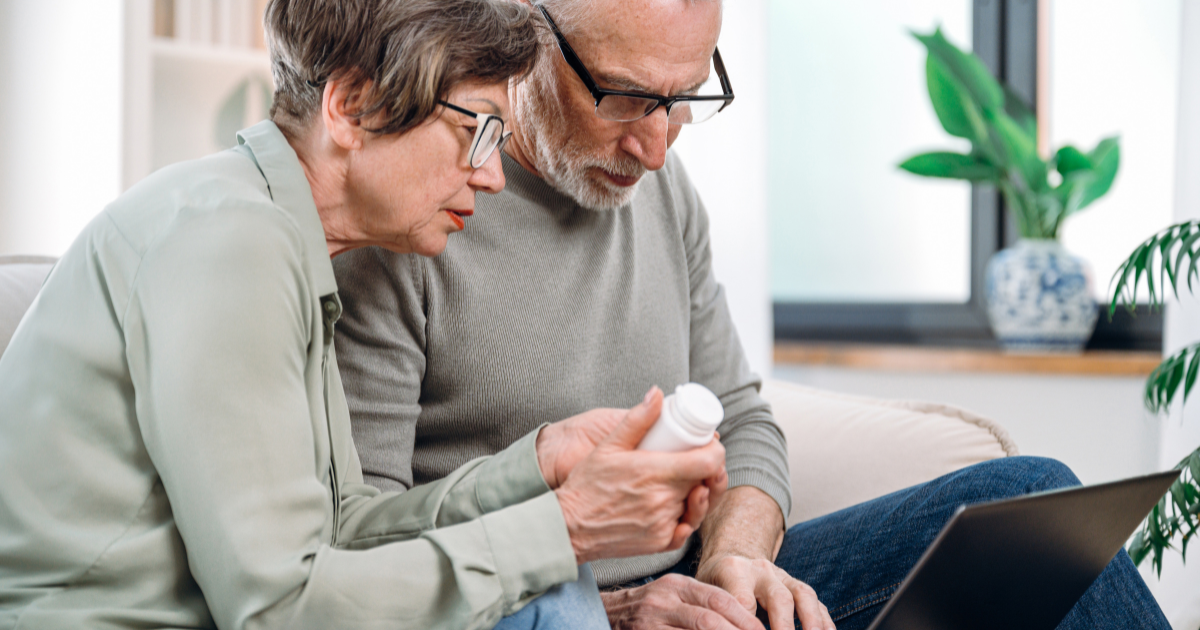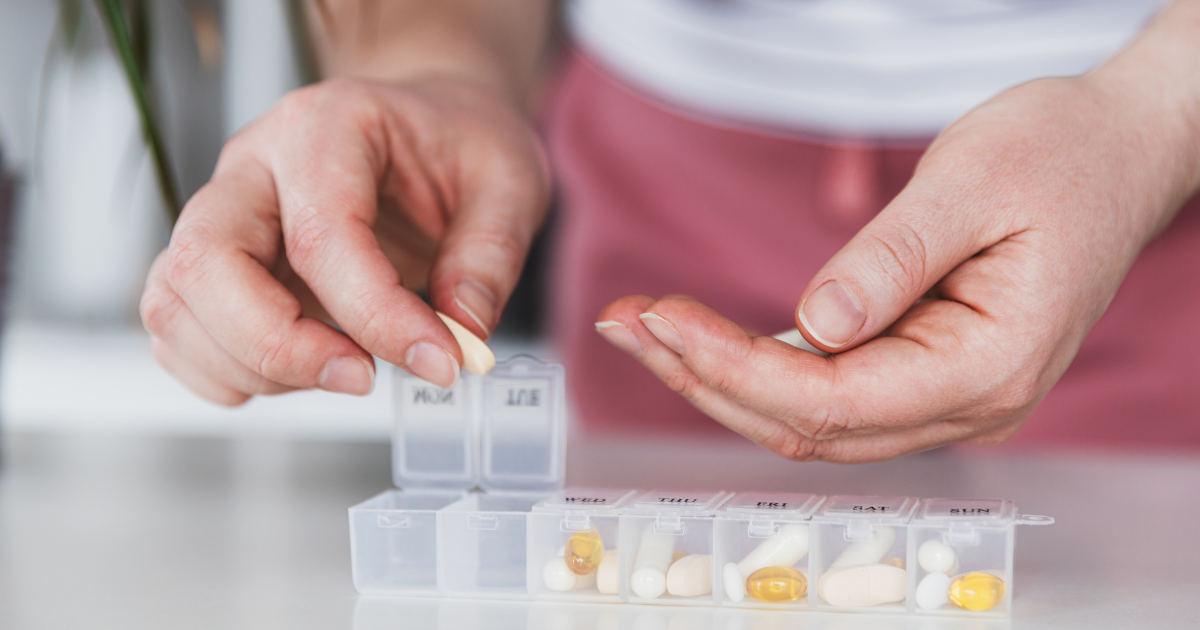
Disasters do not wait for a convenient time. If a storm, wildfire, or emergency hits, getting to the pharmacy might not be possible. That is why knowing how to get an emergency prescription refill is so essential, especially for seniors and caregivers. If you cannot refill your medication the usual way, there are steps you can take.
How to Get an Emergency Prescription Refill
Step 1: Contact Your Pharmacy First
If you realize you are running low on medication during a disaster, your pharmacy should be your first call. They may be able to help you get an emergency refill prescription right away.
In many states, pharmacists can provide a 72-hour emergency supply of most medications (even without a doctor's approval) if your health could be at risk. This option is often used for maintenance medications like blood pressure pills, heart meds, or insulin.
To get this, the pharmacist must believe that:
- The medicine is essential to your health.
- You have taken it regularly.
- It is not a controlled substance.
When you call, ask these questions:
- "Do you offer emergency refill prescriptions?"
- "Can I get a supply now, even if I am not due for a refill yet?"
- "Do I qualify for an override because of the current situation?"
Also, make sure to have the following information ready to help the pharmacist quickly look up your file and check your refill history:
- Your full name and date of birth
- The name of the medication
- The prescription (RX) number, if you have it
- Your doctor's name and contact information
If your pharmacy cannot help directly, they can often tell you the fastest way to get what you need. That might mean contacting your doctor, using a telehealth service, or visiting a different pharmacy location with power or stock available.
Know the Rules for Controlled Drugs
Things get more complicated if you take controlled drugs (like opioid pain medications or anxiety medications). These prescriptions follow strict federal rules, and pharmacists usually cannot refill them without a new prescription, even during a disaster. So, for a refill of a controlled medication, your first step is to reach out to your doctor.

Step 2: Use Telehealth or Contact Your Doctor
If your pharmacy cannot help, or your medication needs a new prescription, the next step is to contact your doctor. Many providers offer telehealth visits, which let you talk to a doctor by phone or video from wherever you are.
Here is what to do:
- Call your primary care provider's office and explain that you need an emergency refill.
- If they are unavailable, ask if another doctor on call who can help you.
- Request that the prescription be sent to a pharmacy that is currently open and has power.
If your doctor cannot be reached, look into telehealth services. Many health systems and urgent care clinics offer same-day virtual appointments, even during emergencies. This can be a faster way to get the needed refill.
Be ready to share:
- Your name, date of birth, and current medications
- The name and dose of the medication you need
- The pharmacy you want the refill sent to
If you are working with a home healthcare provider like Keystone Health, their care team may also be able to help coordinate the refill, contact your doctor, or guide you to a telehealth option.
Step 3: Call Local Health Departments or Emergency Services
If you cannot reach your doctor or pharmacy and are still without your medication, contact your local health department or emergency response services. These agencies often help with emergency medication access when disasters disrupt normal care.
Local and state health departments may:
- Coordinate with pharmacies and hospitals to supply urgent medications,
- Set up emergency prescription refill programs,
- Help you find transportation to open medical centers, and/or
- Connect you with temporary shelters that offer medical support.
You can also contact national organizations like the Red Cross or FEMA. During large-scale emergencies, these groups sometimes operate mobile clinics or partner with local services to help people get the prescriptions they need.
Helpful Tip:
Keep a list of local and national emergency contacts in your go-bag or emergency kit. Include:
- Your local health department's phone number,
- The nearest hospital or urgent care,
- Red Cross and FEMA hotlines, and
- Your pharmacy and doctor's contact info.
When the power is out or the internet is down, having this list ready will save time and help you act quickly.

Special Considerations for Seniors and Caregivers
Managing medications during an emergency can be especially challenging for older adults, particularly those with limited mobility, memory issues, or chronic health conditions.
If you are a caregiver, being prepared ahead of time makes a big difference.
Support With Daily Medication Access
Many seniors may struggle to call the pharmacy, describe their medications, or remember when they last took a dose. You can help by:
- Keeping a printed medication list in easy reach,
- Posting a list of important phone numbers near the phone or taped inside a cabinet door, and
- Using clearly labeled pill organizers with enough compartments for at least one week.
Plan for Emergencies Before They Happen
Make sure your loved one has:
- An extra set of pill organizers already filled for emergencies (make sure they are correctly stored),
- A backup supply of key medications (if possible), and
- Copies of their insurance cards and prescription records.
Even if a caregiver is not present, these tools allow neighbors, friends, or emergency responders to step in and help.
How Keystone Health Can Help
If your loved one receives in-home care through Keystone Health, our team can assist with medication management, including:
- Organizing medications and setting reminders,
- Coordinating with pharmacies and doctors for refills, and
- Helping during emergencies by reaching out to the right contacts.
Keystone's caregivers understand the unique needs of older adults. Our support helps prevent missed doses, reduces stress, and ensures that seniors continue getting the care they need, even when circumstances become difficult.
Having a clear plan and the right support will keep your loved one safe and comfortable during any emergency.
Do Not Wait – Plan Your Emergency Medication Refill Strategy Now
The best time to plan is before a disaster happens. Talk with your doctor or care team about early refill options and keep emergency contacts handy.
And if you need help, Keystone Health is here to support you with in-home care, medication management, and emergency preparedness resources designed to keep you or your loved one safe and healthy when it matters most.
